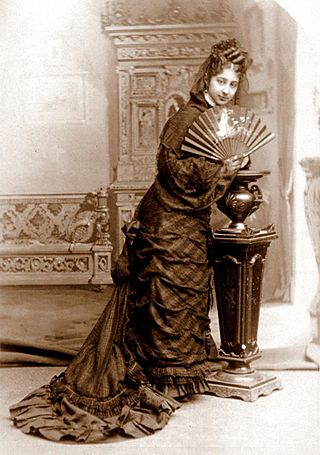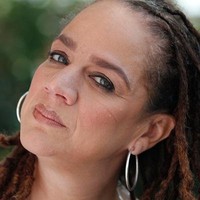Related Research Articles

Carenza Rachel Lewis is a British academic archaeologist and television presenter.

Zelia Maria Magdalena Nuttall was an American archaeologist and anthropologist who specialised in pre-Aztec Mexican cultures and pre-Columbian manuscripts. She discovered two forgotten manuscripts of this type in private collections, one of them being the Codex Zouche-Nuttall. She decoded the Aztec calendar stone and was one of the first to identify and recognise artefacts dating back to the pre-Aztec period.

James Bennett Griffin or Jimmy Griffin was an American archaeologist. He is regarded as one of the most influential archaeologists in North America in the 20th century.
Margaret W. Conkey is an American archaeologist and academic, who specializes in the Magdalenian period of the Upper Paleolithic in the French Pyrénées. Her research focuses on cave art produced during this period. Conkey is noted as one of the first archaeologists to explore the issues of gender and feminist perspectives in archaeology and in past human societies, using feminist theory to reinterpret images and objects from the Paleolithic Era or the late Ice Age. She is Professor Emerita of Anthropology at the University of California, Berkeley. She was named by Discover magazine in their 2002 article, "The 50 Most Important Women in Science".
Arthur Andrew Demarest is an American anthropologist and archaeologist, known for his studies of the Maya civilization.

Community archaeology is archaeology by the people for the people. The field is also known as public archaeology. There is debate about whether the terms are interchangeable; some believe that community archaeology is but one form of public archaeology, which can include many other modes of practice, in addition to what is described here. The design, goals, involved communities, and methods in community archaeology projects vary greatly, but there are two general aspects found in all community archaeology projects. First, community archaeology involves communities "in the planning and carrying out of research projects that are of direct interest to them". Second, community archaeologists generally believe they are making an altruistic difference. Many scholars on the subject have argued that community collaboration does not have a pre-set method to follow. Although not found in every project, there are a number of recurring purposes and goals in community archaeology. Similarities are also found in different countries and regions—due to commonalities in archaeological communities, laws, institutions, and types of communities. It has also been suggested that public archaeology can be defined in a broad sense as the production and consumption of archaeological "commodities".
Joyce Marcus is a Latin American archaeologist and professor in the Department of Anthropology, College of Literature, Science, and the Arts at the University of Michigan, Ann Arbor. She also holds the position of Curator of Latin American Archaeology, University of Michigan Museum of Anthropological Archaeology. Marcus has published extensively in the field of Latin American archaeological research. Her focus has been primarily on the Zapotec, Maya, and coastal Andean civilizations of Central and South America. Much of her fieldwork has been concentrated in the Valley of Oaxaca, Mexico. She is known for her "Dynamic model", four-tiered hierarchy, and her use of interdisciplinary study.
Waldo Rudolph Wedel was an American archaeologist and a central figure in the study of the prehistory of the Great Plains. He was born in Newton, Kansas to a family of Mennonites.
Judith Ann Bense is an American academic, Florida historical archaeologist, and a former president of the University of West Florida. She is also the chairwoman of the Florida Historical Commission at the University of West Florida, she served as a faculty member and department chair in the anthropology program, which she started at the school. In 2008, she started her 7-year term as president of the university. Prior to this, she was the executive director of anthropology and archaeology at UWF. During her career, she was fundamental in drafting the legislation to create the Florida Public Archaeology Network (FPAN).

Claire Smith, is an Australian archaeologist specialising in Indigenous archaeology, symbolic communication and rock art. She served as Dean (Research) of the College of Humanities, Arts and Social Sciences at Flinders University in 2017-2018 and, prior to that, as head of the Department of Archaeology. She served two terms as president of the World Archaeological Congress from 2003 to 2014 and greatly increased the organization's size and visibility. Among her many publications is the Encyclopedia of Global Archaeology.

The School for Advanced Research (SAR), until 2007 known as the School of American Research and founded in 1907 as the School for American Archaeology (SAA), is an advanced research center located in Santa Fe, New Mexico, U.S. Since 1967, the scope of the school's activities has embraced a global perspective through programs to encourage advanced scholarship in anthropology and related social science disciplines and the humanities, and to facilitate the work of Native American scholars and artists. SAR offers residential fellowships for artists and scholars, and it publishes academic and popular non-fiction books through SAR Press.
Jane MacLaren Walsh is an anthropologist and researcher at the Smithsonian's National Museum of Natural History in Washington, D.C. She is known for her role in exposing faked pre-Columbian artifacts.
Janet D. Spector was an American archaeologist known for her contributions to the archaeology of gender and ethnoarchaeology.
Hannah Marie Wormington was an American archaeologist known for her writings and fieldwork on southwestern and Paleo-Indians archaeology over a long career that lasted almost sixty years.

Rebecca (Becca) Peixotto is an American archaeologist who is best known for her contribution to the Rising Star Expedition as one of the six Underground Astronauts, a group of scientists tasked with excavating the Rising Star Cave System. She has also participated in the Great Dismal Swamp Landscape Study and is an experienced wilderness educator.

Jacquie Jones was an American public television film director, producer, writer and media executive. She was an editor of the Black Film Review from 1989 to 1993. She was executive director of Black Public Media from 2005 to 2014.
Miriam T. Stark is an American archaeologist whose field experience and emphasis of studies have included locations in North America, the Near East and Southeast Asia. She is currently a professor of Southeast Asian Archaeology at the University of Hawai’i-Manoa, a position she has held since August 1995. Having first received her B.A. from the University of Michigan, she went on to complete her M.A and PhD from the University of Arizona. Stark has co-directed the Lower Mekong Archaeological Project (LOMAP), located in southern Cambodia for the past 12 years. Her research focus not only includes the various aspects of political economy, but also on the process of state formation.
Elin Corey Danien (1929–2019) was an American anthropologist and scholar of ancient Maya ceramics. She was an expert on Chamá pottery: polychrome, cylindrical vases produced in the eighth century CE in the highlands of what is now Guatemala. After earning BA, MA, and PhD degrees from the University of Pennsylvania, Danien worked at the Penn Museum, where she conducted and published research, developed exhibits, initiated public outreach events including "Member's Nights" and an annual "Maya Weekend", and later, after retirement, volunteered as a docent. She co-founded the Museum's Pre-Columbian Society, which gathered professional and amateur scholars interested in indigenous peoples of the Americas. As a philanthropist, she founded a scholarship program called Bread Upon the Waters which gave women over age thirty the opportunity to pursue and complete undergraduate degrees at the University of Pennsylvania through part-time study. A colleague remembered her as someone who was "more than a force of nature," and who often claimed that, "Archaeology is the most fun you can have with your pants on."
Ruthann Knudson (1941-2018) was an American archaeologist. She is best known for her work on North American Paleoindian (Plainview) lithics. As a woman in early cultural resource management, Knudson was a strong advocate for the accurate representation of women in reservoir salvage archaeology. Additionally, she was also important in drafting and advocating for the National Historic Preservation Act Amendments of 1980.

Uzma Z. Rizvi is an American archaeologist and associate professor of Anthropology and Urban Studies at Pratt Institute and a visiting scholar at Shah Abdul Latif University, Khairpur, Pakistan, where she teaches decolonial archaeology, ancient urbanism, critical heritage studies, new materialism, and the postcolonial critique. Her primary research centers on Ancient Pakistan and the United Arab Emirates during the third millennium BCE.
References
- ↑ Flewellen, Ayana. "Oral History Project Feature: Alexandra Jones". Society of Black Archaeologists. Archived from the original on 16 September 2017. Retrieved 21 May 2018.
- 1 2 "Time Team America: Alexandra Jones". Pbs.Org. Archived from the original on 10 February 2018. Retrieved 12 May 2018.
- 1 2 3 4 Brown, Briahnna. "ALEXANDRA JONES (B.A. '01; M.A. '03)". Howard Jones University. Retrieved 21 May 2018.
- 1 2 "Archaeology in the Community: Introducing New Generations to the Mysteries of Ancient Lives". Antiquity Now. 29 April 2014. Retrieved 21 May 2018.
- ↑ "Head Turners: Archaeologist Alexandra Jones Empowers Communities by Uncovering the Past". 18 December 2023.
- ↑ https://eca.state.gov/node/256